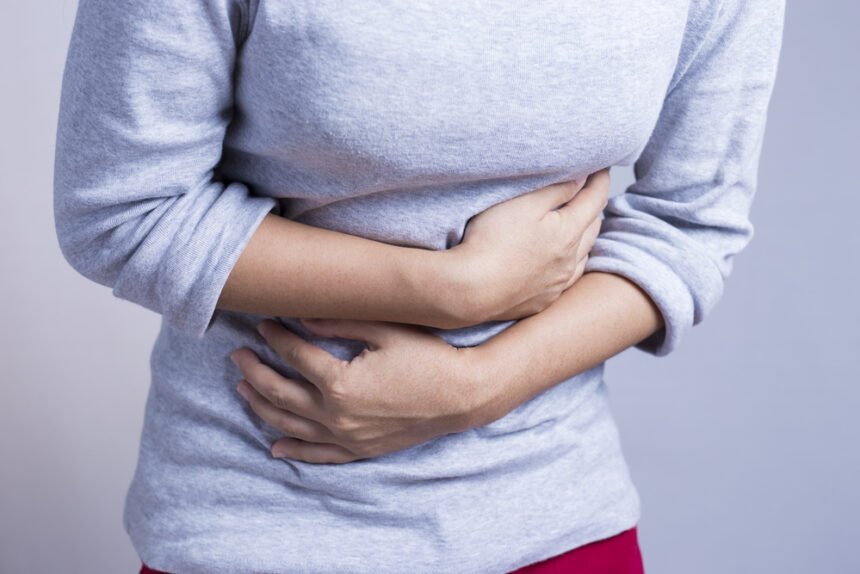Showing up to the emergency room with a stomach ache can be expensive and send you home with a recommendation for a supplement or medication you can get without a prescription. Stomach pain can be a result of many different things including the food you have or have not eaten, bacteria and viruses, and even chronic illnesses. Many of these things can be treated through the right supplements and diet or even with over-the-counter remedies without visiting a doctor, though it is important to know when to seek help.
Types of Stomach Pain
Stomach pain can be categorized in many ways with symptoms such as heartburn, constipation, diarrhea, vomiting, and cramping from either gas or abdominal muscles. You can also have a localized pain which worsens or lessens when pressure is applied to that area. When these symptoms go away after over-the-counter treatment or last for less than a day, it is called acute stomach pain and can be the sign that you have a mild stomach bug or need a change in diet. if the symptoms are not relieved by over-the-counter medications and persists, then it is called chronic stomach pain and may be the sign of an underlying illness or medical condition. To keep your stomach in good health, you can buy Bio Complete 3 as well as other supplements and avoid greasy or spicy foods.
Treatment Types
Many of the same things doctors use to treat stomach pain in the hospital are ones you can use at home, and some of the things you can do for your own digestive health can keep the pain from starting. The first factor in stomach issues is your diet. When the supplements and food you ingest have nutrients beneficial to digestive health, then you are less likely to develop stomach pain. You can also take over-the-counter medications containing simethicone for gas, an acid-reducer for heartburn, or a laxative for constipation. For cramps, you can use an over-the-counter muscle relaxer and a heating pad. When these symptoms get worse or last more than a couple of days, then it is time to call the doctor or head to the ER.
When To Visit a Doctor
Although there are several things you can do for yourself to reduce the occurrence of stomach pain and to treat it when it does happen, some symptoms or causes of the pain will need immediate or even emergency medical intervention. For instance, if your pain is the result of a blow to the abdomen and there is a hard spot near the pain, then you could have internal bleeding or other serious medical issues. If there is blood in your vomit or stool, dizziness or constipation with vomiting, then a doctor will be more help than your medicine cabinet. You should also head to the hospital if you have been vomiting or experiencing diarrhea for several days as this can lead to dehydration and worsening health complications.
How a Doctor Can Help
The biggest thing that a doctor can do for your stomach pain, that you cannot do yourself, is determine whether the underlying cause is serious enough for intervention. Some of the treatments may include surgery, breaking up masses with ultrasound or kidney dialysis. When you do visit your physician or the emergency room, it is important to tell medical professionals what supplements and medications you have taken either as a routine or to treat the pain. This can help ensure that any further treatments will not have negative reactions in your system as well as give valuable information about the underlying cause. It is also important to let them know how long the pain has lasted, where it is localized and what symptoms are accompanying it such as vomiting, gas and constipation. Your doctor may press on your abdomen in various areas to further narrow down the causes or order ultrasounds, blood tests or urine analysis. In cases of persistent vomiting or diarrhea, you will probably be given intravenous fluids to help with dehydration.
Conclusion
Most of the time, stomach pain can be avoided through taking the right supplements and having a healthy diet, but sometimes you may need more specific treatment either at home or through a medical facility. Some common stomach problems include viruses, food poisoning and intolerance of greasy, starchy or spicy foods. Stomach pain which does not respond to home remedies and over-the-counter medicines, is accompanied by blood in vomit or stool, or is the result of an acute trauma should be seen by medical professionals in either the emergency room or your private physician’s office.








